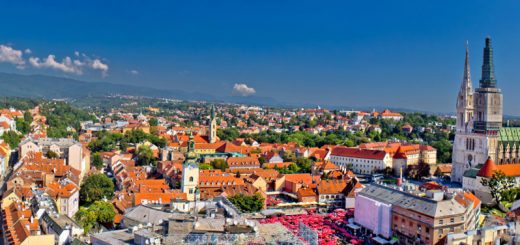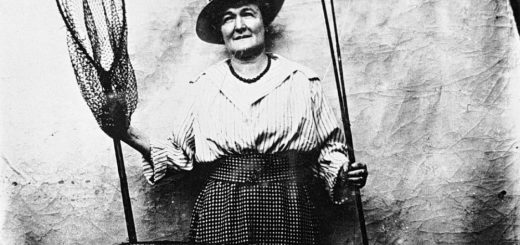Geo-historical metabolisms within human landscapes
EARTHEN HISTORIES
Geo-historical metabolisms within human landscapes
Workshop on Environmental History of Migration
Friday 15th, December 2017 > h 10.00 > 17.00
Dipartimento di Studi Linguistici e Culturali, Largo S. Eufemia 19, Modena, Italy
“This faculty of understanding the living is, in very truth, the master quality of the historian”
Marc Bloch, The Historian’s Craft
The main theme of the workshop is environmental history of migration, notably the idea of geo-historical metabolism in migration contexts. We believe that cultural heritage and the production of landscape are better understood “ecologically”, focusing on the relationality of the human and non-human actors that inhabit those hybrid spaces. Following Michel De Certeau and Tim Ingold, we argue that geo-history provides us a solid methodological tool-box, which enables to highlight the many “lines” which constitute “the paths […] along which people grow into knowledge of the world around them, and describe this world in the stories they tell” (Ingold, 2007, p. 3). This wayfaring approach (Ingold, 2007, p. 16) brings together the spatial and the historical, enabling a metabolic understanding (Swyngedouw, Heynen, 2003) of migration processes. Following Armiero and Tucker (2017), we value environmental history of migration as and emerging trans-disciplinary field which can help environmental historians navigating through human and more-than-human environments which are more and more informed by mobility. Hence, with this workshop we aim to foster contributions to the emerging field of environmental history of migration.
Organized in co-operation with the Master in Public History, and in collaboration with the KTH – Environmental Humanities Laboratory in Stockholm, the workshop will focus on the topic of geo-historical metabolism. We invite proposals that explore the contribution of migrants to the transformation and production of material and cultural spaces through work, leisure, transmission of memories, identity constructions patterns and transnational landscapes. From Italian miners who moved to Belgium, France, Switzerland and Germany in the post-war period, to the “Little Italies” built by Italian workers in United States, Brazil and Argentina during the time of Great Migration, this seminar looks for contributions from researchers active in the field of human and social sciences. In particular we encourage applicants within the fields of environmental history, migration studies, human geography and environmental humanities from Italy and Europe. Literary, artistic, biographical, audio-visual and story-telling contributions are also welcome.
We intend to include six presentations. In order to participate the applicants should send a short CV and an abstract of the presentation (300 words max). The proposal can be in Italian, English and French. The workshop is open to all contributors. We offer partial and complete travel grants for the applicants (100€ max). Please write in the application that you also apply for a grant. All required documents must be submitted via e-mail no later than November 15, 2017 to: giuseppe.morrone@unimore.it
More information on:
http://www.storiamigrazioni.unimore.it/site/ home/news/seminari-e-incontri.html
For any queries concerning the application, mail to:
valisena@kth.se
lorenzo.bertucelli@unimore.it
antonio.geostorico@gmail.com
EARTHEN HISTORIES
Geo-historical metabolisms within human landscapes
Workshop on Environmental History of Migration
Friday 15th, December 2017 > h 10.00 > 17.00
Dipartimento di Studi Linguistici e Culturali, Largo S. Eufemia 19, Modena, Italy
“This faculty of understanding the living is, in very truth, the master quality of the historian”
Marc Bloch, The Historian’s Craft
The main theme of the workshop is environmental history of migration, notably the idea of geo-historical metabolism in migration contexts. We believe that cultural heritage and the production of landscape are better understood “ecologically”, focusing on the relationality of the human and non-human actors that inhabit those hybrid spaces. Following Michel De Certeau and Tim Ingold, we argue that geo-history provides us a solid methodological tool-box, which enables to highlight the many “lines” which constitute “the paths […] along which people grow into knowledge of the world around them, and describe this world in the stories they tell” (Ingold, 2007, p. 3). This wayfaring approach (Ingold, 2007, p. 16) brings together the spatial and the historical, enabling a metabolic understanding (Swyngedouw, Heynen, 2003) of migration processes. Following Armiero and Tucker (2017), we value environmental history of migration as and emerging trans-disciplinary field which can help environmental historians navigating through human and more-than-human environments which are more and more informed by mobility. Hence, with this workshop we aim to foster contributions to the emerging field of environmental history of migration.
Organized in co-operation with the Master in Public History, and in collaboration with the KTH – Environmental Humanities Laboratory in Stockholm, the workshop will focus on the topic of geo-historical metabolism. We invite proposals that explore the contribution of migrants to the transformation and production of material and cultural spaces through work, leisure, transmission of memories, identity constructions patterns and transnational landscapes. From Italian miners who moved to Belgium, France, Switzerland and Germany in the post-war period, to the “Little Italies” built by Italian workers in United States, Brazil and Argentina during the time of Great Migration, this seminar looks for contributions from researchers active in the field of human and social sciences. In particular we encourage applicants within the fields of environmental history, migration studies, human geography and environmental humanities from Italy and Europe. Literary, artistic, biographical, audio-visual and story-telling contributions are also welcome.
We intend to include six presentations. In order to participate the applicants should send a short CV and an abstract of the presentation (300 words max). The proposal can be in Italian, English and French. The workshop is open to all contributors. We offer partial and complete travel grants for the applicants (100€ max). Please write in the application that you also apply for a grant. All required documents must be submitted via e-mail no later than November 15, 2017 to: giuseppe.morrone@unimore.it
More information on:
http://www.storiamigrazioni.unimore.it/site/ home/news/seminari-e-incontri.html
For any queries concerning the application, mail to:
valisena@kth.se
lorenzo.bertucelli@unimore.it
antonio.geostorico@gmail.com



Commenti recenti